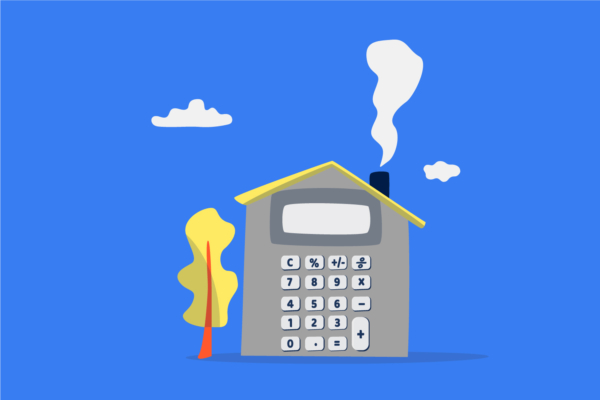
Buying a Condo: 7 Ways the Process Looks Different

If you’re searching for a new place to call home, you may be considering more than just a traditional single-family house and exploring condos as an option.
A condo (short for condominium) is a privately owned unit within a larger residential community where owners share common spaces and amenities. Many buyers are drawn to condos for their lower price point, reduced maintenance responsibilities, and access to perks like pools, gyms, and security services—all without the hassle of upkeep that comes with a standalone house.
However, buying a condo comes with notable differences, from HOA rules and fees to financing challenges and resale considerations. Before making a decision, there are a few things buyers should know.
Key Differences in Buying a Condo vs a House
Whether you’re a first-time buyer or simply weighing your options for your next purchase, here’s what makes the condo buying process different from that of a traditional house.
1. Condos are often cheaper than a house.
For many buyers, affordability is a major reason to consider a condo over a traditional house. While prices vary by location, condos are generally more budget-friendly, making them a great option for first-time buyers or those looking to downsize.
Sale Price
On average, condos cost less than single-family homes in the same area. In January 2025, the National Association of Realtors found that the median price of condos was $349,500— which is considerably lower than the $402,000 median price for an existing single family home.
Maintenance and Upkeep
When you own a house, you’re responsible for maintaining everything—landscaping, exterior repairs, roofing, and more. With a condo, much of this work is handled by the homeowners association (HOA) and covered through monthly fees. While these fees can add up, they are often less expensive than what homeowners pay.
Insurance
Condo insurance, also known as HO6 insurance, typically costs less than homeowners insurance. This is because the condo association’s master policy covers the building’s exterior, roof, and common areas, leaving you responsible for insuring only the interior of your unit and your personal belongings. They come in various sizes, including single-wide, double-wide, and even multi-section homes that can rival the size and features of a traditional site-built house.
From Mortgages to Home Equity Loans
Our local, award-winning lending team is ready to help you begin today.
2. Condos have more rules to consider when buying.
When you buy a condo, you’re not just purchasing a unit—you’re also agreeing to abide by the homeowners association rules. These rules, outlined in the community’s Covenants, Conditions, and Restrictions (CC&Rs), can impact how you use your property. While they help maintain the building’s value and community standards, they may also limit certain freedoms that homeowners enjoy.
Renovations and Upgrades
Unlike a standalone house where you can remodel as you please, condo renovations often need approval from the HOA. Changes that affect the building’s structure, plumbing, or electrical systems—such as removing a wall or installing new flooring—typically require an application process. Some HOAs even regulate aesthetic choices, like paint colors or window treatments, to maintain a uniform look throughout the community.
Rentals
If you’re thinking about renting out your condo, you’ll need to review the HOA’s rental policies carefully. Many associations impose restrictions on both short-term rentals, like Airbnb, and long-term leases to maintain a stable, owner-occupied community. Some HOAs limit the percentage of rented units, require minimum lease terms, or even prohibit rentals altogether.
3. Condo fees add an extra expense.
One of the biggest financial differences between owning a condo and a house is the mandatory monthly condo fees. While some houses in planned communities also have HOA fees, nearly all condos come with these additional costs. Condo fees cover maintenance of shared spaces, amenities, and services such as landscaping, snow removal, and building repairs.
These fees vary widely depending on the size of the building, the amenities offered, and the financial health of the HOA. While they provide convenience by covering exterior maintenance and shared utilities, they can also be a significant ongoing expense. Additionally, condo fees tend to increase over time as the cost of upkeep rises.
Beyond regular dues, condo owners may also face special assessments, which are one-time charges for unexpected repairs or major upgrades that aren’t covered by the existing budget. If the HOA doesn’t have enough money in reserve, owners may be required to contribute a lump sum to fund necessary projects, such as a new roof or elevator replacement.
4. Financing a condo can be more complex.
Getting a mortgage for a condo isn’t always as straightforward as financing a traditional house. While you’ll still need to meet standard lending requirements like credit score and income verification, lenders also evaluate the financial health of the condo association and the overall stability of the building. If the HOA has financial issues, too many rental units, or ongoing legal disputes, it can make securing a loan more difficult.
Some government-backed loans, like FHA and VA loans, have stricter requirements for condos. Not all condo communities are FHA- or VA-approved, meaning buyers who rely on these loan programs may have fewer options. Even conventional lenders may have additional conditions, such as requiring a higher down payment or proof that the HOA has adequate reserves for maintenance and repairs.
Interest rates on condo loans can also be slightly higher due to the perceived risk of shared property ownership. Before purchasing a condo, it’s important to work with a lender who understands condo financing and to review the association’s financial documents to ensure the property qualifies for a mortgage.
5. Closing on a condo typically has more steps than closing on a house.
The closing process for a condo involves additional steps compared to buying a house, primarily due to the involvement of the homeowners association (HOA).
Before closing, buyers typically need to obtain and review the HOA’s governing documents, including bylaws and financial statements. Some condo associations may also require board approval before a sale can proceed, which can add time to the process.
In addition to standard closing costs, some condo buyers face association-related fees, such as transfer fees, move-in fees, or upfront contributions to the HOA’s reserve fund. These costs vary by community and should be factored into the overall budget when purchasing a condo.
6. Neighbors are a bigger factor to consider.
Living in a condo means being in close proximity to your neighbors, with shared walls, hallways, and common areas. Unlike a house, where you have space and separation, condo living often comes with more noise and less privacy. You may hear footsteps above you, conversations next door, or activity in shared spaces like the lobby or pool.
Community rules can help maintain a peaceful environment, but neighbor interactions are inevitable. Before buying, it’s worth visiting the building at different times of day to get a sense of noise levels and overall atmosphere. If privacy and quiet are top priorities, a single-family home—or at least a condo with soundproofing and respectful neighbors—may be a better fit.
7. There are more factors to consider when reselling a condo.
The resale market for condos can be different from that of single-family homes. Condos tend to appeal to specific buyers, such as first-time homeowners, downsizers, and those looking for a low-maintenance lifestyle.
However, demand can fluctuate based on factors like location, available amenities, and local housing trends. In some areas, condos appreciate more slowly than houses, making long-term value growth an important consideration. Additionally, high HOA fees or restrictive rules—such as limits on rentals—can make a condo less attractive to potential buyers.
Beyond market demand, the financial health of the HOA plays a major role in resale value. If the HOA has poor financial management or ongoing legal disputes, it can reduce buyer interest and even affect mortgage approval.
Work with Lenders Who Know Condos
Buying a condo offers many benefits, but it also comes with unique considerations that can impact your finances and lifestyle. Understanding HOA rules, fees, and resale factors ahead of time can help you make an informed decision. And, if you decide a condo is right for you, working with a lender who understands condo financing can make the financing and closing process that much smoother!




